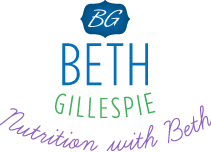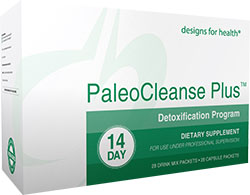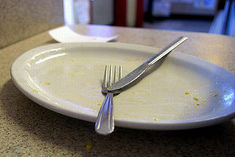As I mentioned in Part I of this blog series on brain health, you certainly cannot separate the brain from the rest of your body! Adequate sleep, blood sugar control, exercise, eating nutrient dense foods, managing stress levels, and staying away from excess sugar, caffeine and alcohol all positively impact your brain health. And the health of your gut also plays a big role in your brain health! I emphasize this again because we often forget to start with the basics, which more often than not make a dramatic difference!
Assuming that you have the basics down, and are still looking for additional brain power, let’s start with your brain’s massive requirement for energy! Mitochondria are often called the powerhouses in our cells that generate energy. Unfortunately, mitochondria are very susceptible to oxidative stress caused by poor diet, lifestyle, and toxins of all types. This oxidative stress can cause inflammation, including neuro-inflammation, which produces an unstable environment in our brains.
How do we support mitochondrial metabolism so that our brain feels energized? The B vitamins are closely involved in overall brain health. In fact, low levels of Vitamin B1 can result in poor concentration and attention. B1 is essential for energy production in the brain. Deficiencies of Vitamins B5 and B6 may lead to poor memory and increased feelings of stress. It is well known that B12 deficiency leads to impaired mental function and even depression. Most of the B vitamins are found in vegetables, beans, whole grains, and nuts/seeds. B12 is found in liver, meat, fish, and dairy. Supplementing with a B vitamin complex can be extremely helpful, especially if you are under a lot of stress like studying for finals, completing a major work project, or making a major life transition.
The brain is partly composed of billions of nerve cells, known as neurons. Neurons allow the brain to communicate within itself and throughout the rest of the nervous system. Messages, called neurotransmitters, are passed back and forth. Neurotransmitters are made from amino acids, which often must be derived directly from the diet. For example, the neurotransmitter serotonin, which is involved in feelings of contentment, is made from the amino acid tryptophan. Adrenaline and dopamine, neurotransmitters that are involved in helping us feel motivated, are made from phenylalanine. Acetylcholine, another neurotransmitter, is very involved in memory and cognitive function. And guess what, B vitamins are very important in the process that converts amino acids to neurotransmitters. In fact, B6 is involved in the manufacture of all amino acid neurotransmitters! Vitamin C and Magnesium are also involved in helping amino acids convert to neurotransmitters. I personally take Magnesium and Vitamin C supplementation on a daily basis. It is important to note that magnesium and Vitamin C are easily depleted by stress!
And what about Omega 3 essential fatty acids? A large percent of the fat in our brain is made from the essential fatty acids. They are termed essential as they cannot be made within the body, so must be derived directly from the diet. Each fatty acid performs vital functions in the structuring of brain cells, ensuring that smooth communication is possible within the brain. DHA, one of the Omega 3 essential fatty acids, is an important component of neuronal cell membranes. DHA promotes optimal brain formation and function, vision and psychomotor development in infants. This is why it is a natural component of breast milk! DHA may also improve adult brain function, by improving brain ATP production and mental task performance. The Omega 3’s, including DHA, are found in higher amounts in fatty fish like salmon and halibut. If you are not a fish eater, consider a DHA supplement to give you a brain boost for a specific time period.
One of my favorite brain nutrients is Acetyl-L-Carnitine. It is one of the most extensively researched brain nutrients with a proven ability to enhance mental energy. Specifically, acetyl-l-carnitine energizes the brain, increases levels of neurotransmitter chemicals needed for memory and focus, and repairs damage done to brain cells by stress and poor nutrition.If you are experiencing mental fatigue or short attention span, acetyl l-carnitine may be very helpful for you.
I referred to neuro-inflammation earlier in this post. Antioxidants are very important to combat inflammation. You can find antioxidants in large quantities in fruits and vegetables. Spices are also a good source of antioxidants. Curcumin is one of my favorites, found in the Indian spice turmeric. It has been shown to tame neuro inflammation, thus having a protective effect on the brain. Tumeric is a fun spice to experiment with in cooking your meals. You can also take it in supplemental form.
Here’s to optimal brain health!!



 Are you a member of the clean plate club? Did your parents encourage you to eat everything on your plate?
Are you a member of the clean plate club? Did your parents encourage you to eat everything on your plate?